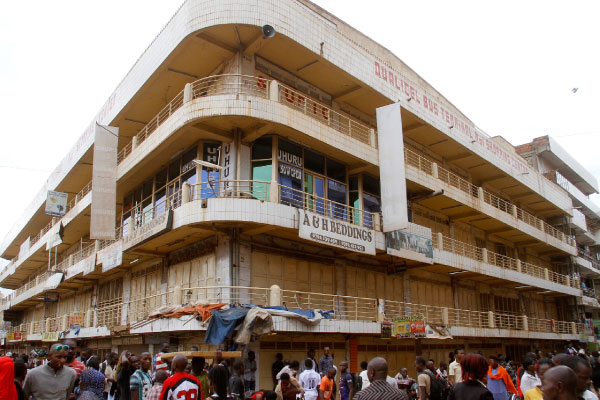Business
Property slump pushes banks to the edge
A few years ago, a business management forum was organised in Kampala at which Patrick Bitature, one of the most successful businessmen in town, was invited to give a talk on investment.
Bitature, a rich man in his own right who also happens to chair several boards in Kampala including the power utility Umeme and the Private Sector Foundation Uganda (PSFU).
His talk happened around the listing of Umeme shares on the Uganda Securities Exchange (USE). While trying to dissuade Ugandans from the culture of investing their money in cows and land, long seen as safe keepers of value, Bitature urged keen prospective investors to seriously consider equity – or buying shares in businesses. But he added, besides equity, you cannot go wrong in real estate.
Indeed Bitatule invested in a number of properties in town at the time including two enviable assets along acacia avenue, one of them housing Protea Hotel and another reserved for high end offices.
Bitature’s advice came at a time when demand for business space both for commercial as well as office purposes was skyrocketing across Kampala. This was certainly during an economic boom that was characterised with high foreign direct investment inflows and a booming economy.
Many property owners in town, perhaps heeding Bitature, snapped up plots to invest in concrete and steel, including converting old structures into arcades. The number of arcades one owned in town appeared to define one’s status among the club of propertied names that include people like Sudhir Rupaleria, John Ssebalamu, Kirumira, Young, Gaster Lule, Mutaasa Kafeero etc. Of course the list includes those who have allegedly been fronting for politicians who accumulated their monies by illegal means.
The late entrants to the rich club were the likes of Hamis Kiggundu of the Ham Enterprises fame.

Many of these buildings were built when the Ugandan economy was vibrant but there is now a property slump
But underlying their rat race to build malls, arcades, and other high rise buildings, were loans that were obtained from a number of commercial banks, including Crane.
Reliable sources have told The Sunrise that several other banks are mired in the quandary of default similar to what has befallen Crane bank. Among the troubled banks that registered high levels of non performing assets include: Equity, DTB, DFCU, KCB, sources say.
“A lot of people contracted loans from banks and staked titles and properties against the loans. The problem is that the property market went into a slump in recent years, meaning that banks are sitting with lots of properties which they cannot liquidate easily because no one is willing to buy property,” said one real estate dealer who preferred anonymity.
Sources say that a number of Kampala’s moguls have discounted their properties but still will not get buyers. Among those selling is Hamis Kiggundu, John Ssebalamu among others.
Informed experts have told The Sunrise that Bank of Uganda has asked the troubled commercial banks to recapitalise – or raise new capital to be able to secure their customers’ deposits. Many of the banks, according to sources, are responding positively.
A case of bad lending?
In most of the cases, the properties that were staked, observers infer, were prime properties that held the promise of higher rewards thus meriting the valuation that they got. But the slow down in economic activity meant that owners would not get the value they anticipated, hence the decline in their value.
Ramathan Ggoobi, a lecturer of economics at Makerere University Business School says, it may be difficult to save Crane Bank because of the huge level of debt. Ggoobi claims that the bank is sitting on bad loans worth over one trillion shillings.
But experts argue that in order for the banks to rise from their current crisis, the economy will have to start growing again. The only challenge though, it appears, the government does not have the immediate solution because of its unwillingness to tackle the fundamental problems of corruption, and excessive spending to stay in power.
By Richard Ssempala
Comments



















